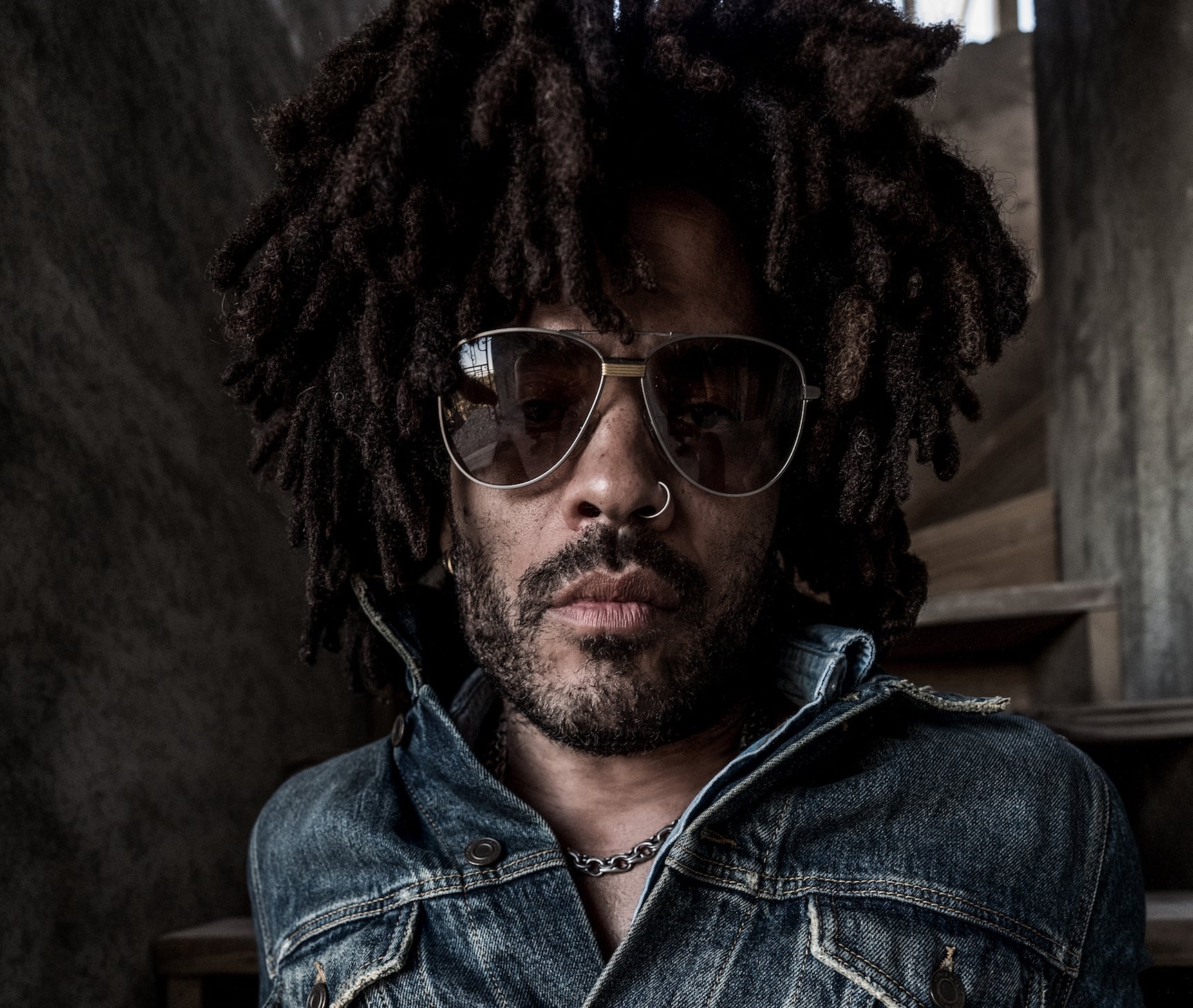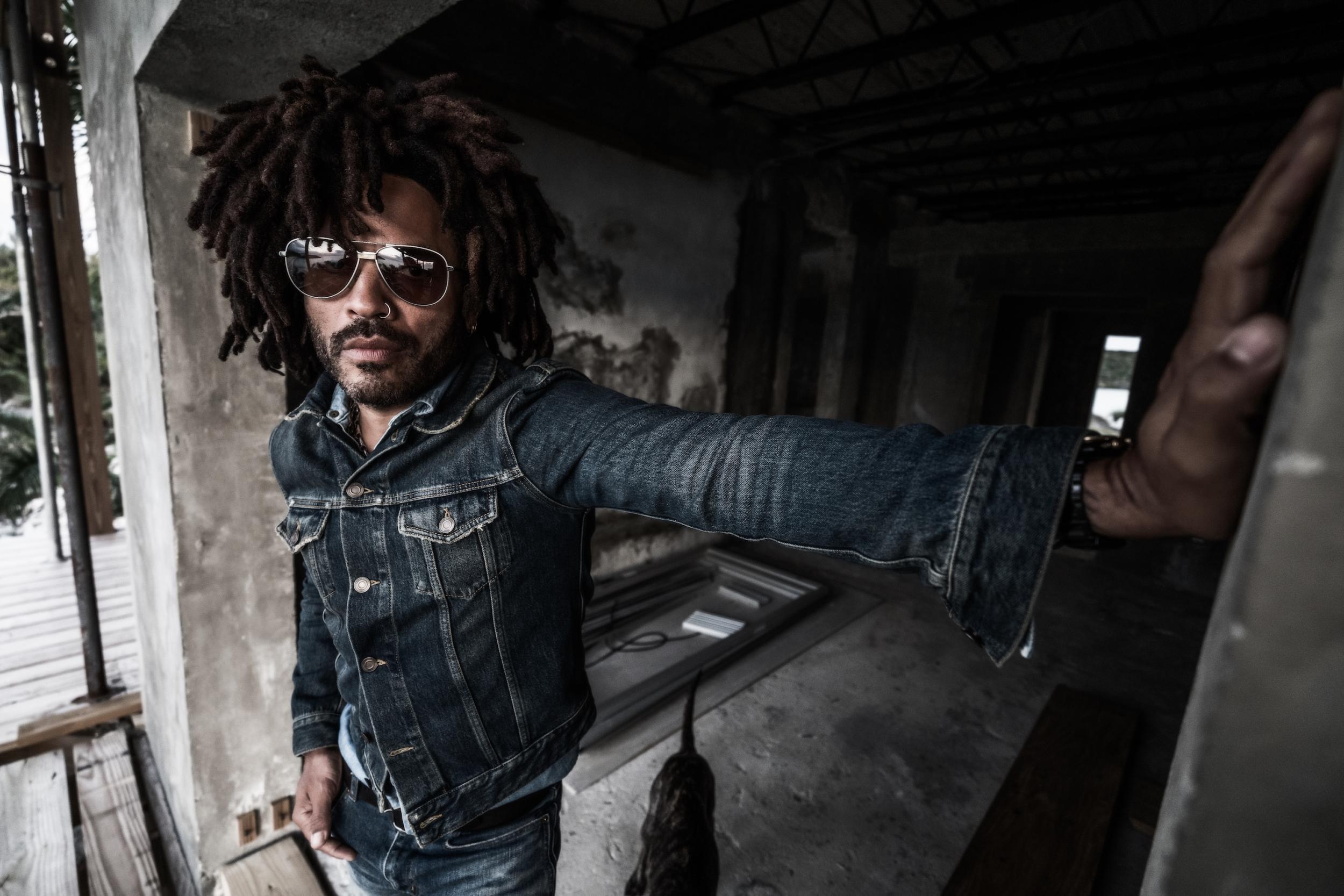Lenny Kravitz: ‘My path was laid out with so many amazing artists who gave me my education’
The American artist's 11th studio album 'Raise Vibration', which features a track inspired by one of many surreal events that punctuated Kravitz's life, is released on 7 September. He talks to Kevin E G Perry


In Lenny Kravitz's bedroom, at his grand home in the centre of Paris, there is a photograph on the wall in a gold frame. It was taken on 16 July 1971 by his father, Sy Kravitz, and shows the Jackson 5 onstage at Madison Square Garden. It was the first show little Lenny ever attended. It was a night that changed his life.
“I was seven years old, but I remember the show completely,” says Kravitz. “It made me want to do what it is that I do.”
Watching a 12-year-old Michael Jackson work his magic in New York that night wasn’t even Kravitz’s first encounter with musical greatness. His father – an NBC television news producer who moonlighted as a jazz promoter – had already introduced him to the likes of Miles Davis and Duke Ellington, and they’d even dropped by to sing Lenny “Happy Birthday”. Those early experiences set the tone for his zelig-like life, populated by a cast of characters and collaborators featuring everyone from Mick Jagger to Al Green and David Bowie to Prince. He even ended up, years later, in the studio with Jackson himself. “There I was working with the person who started the whole thing for me,” he remembers. “I’ve had the opportunity to work with so many of my heroes. It’s wonderful. My path was laid out with so many amazing artists who gave me my education.”
Jackson’s backing vocals, recorded during their sessions together, appear on “Low”, a track from Kravitz’s new album Raise Vibration. His 11th record, it features Kravitz’s characteristic blend of rock, pop, soul, R&B and even, on a track called “Johnny Cash”, a sort of psychedelic country and western. That particular song was inspired both by a recent break-up and by one of the many surreal encounters that punctuate Kravitz’s life; when the eponymous country music icon and his wife arrived at the very moment Kravitz learned his mother Roxie had died in 1995.
“I was living at Rick Rubin’s house in Los Angeles,” Kravitz explains. “I’d been at the hospital and I was going back to have a shower and get some food. When I got to the house, the phone rang and somebody told me: ‘Your mom died. She left.’ I was standing at the bottom of the stairs, obviously distraught, and at the same time Johnny and June were coming down the stairs. They could see I looked disturbed. Johnny said: ‘What’s going on?’ and I said: ‘My mom just died.’
"The two of them came down the stairs and surrounded me, one on each side, and they pulled me in and held me, consoled me, and spoke to me. They were really beautiful and loving and supportive. It’s not like we were great friends, but they chose to do the beautiful thing and to treat me like family at that moment. The song itself was written for somebody that I was having a break-up with, which was quite painful. In the song I’m asking for the same sort of comfort from that person, to get through it.”
Kravitz had been very close to his mother, who became famous herself by playing Helen Willis in the long-running sitcom The Jeffersons and becoming half of the first interracial couple to appear on primetime US television. His relationship with his father was more strained, but they reconciled shortly before the end of his life in 2005, when the 80-year-old underwent a deathbed conversion to Christianity after claiming to see black-winged creatures flying around his room. Kravitz was so moved by the experience that he too decided to embrace religion, and famously said he’d give up sex until marriage – a promise, he later conceded, he couldn’t keep.

Kravitz has been married once before, at the age of 23, to The Cosby Show actress Lisa Bonet. Their daughter Zoë has carved out an impressive acting career of her own, winning widespread acclaim for her role in the HBO drama Big Little Lies. Kravitz, while clearly full of fatherly pride, still sounds a little bemused that his daughter decided to follow her parents into the family business.
“I didn’t think she was going to go in that direction at all,” he says. “I was surprised when she did, but then again she’d been brought up around it and she’s smart. I’m extremely proud of her, just for the person that she is. I’m of course happy for her success, but the main thing is the person that she’s become. She’s a soulful human being and she’s doing what she loves. She did it on her own, with no help from myself or her mother other than her upbringing and what she was exposed to.”
Now 54, Kravitz has been around long enough to see his own music come in and out of fashion. Derided for being too in thrall to the past when he first started out, Kravitz made his name with a string of hits like “Are You Gonna Go My Way”, “Fly Away” and his cover of The Guess Who’s “American Woman”. Between 1999 and 2002 he won a record-breaking four consecutive Grammys for Best Male Rock Vocal Performance, yet these days a younger generation of hipsters, busy reclaiming easy-listening, had embraced his 1991 slow jam “It Ain’t Over Til It’s Over”.
“I guess it’s become a classic,” he says, with no trace of either self-congratulation or false modesty. “I’m really appreciative. Whenever you have any song that becomes a classic and becomes part of the fabric of people’s lives, it’s a blessing.”
While Kravitz has always been musically promiscuous, a common thread running through almost all of his work is an insistence on playing as many instruments himself as he possibly can. On Raise Vibration, Kravitz plays guitar, bass, drums, piano, bongos, glockenspiel, Moog synthesiser, sitar and even the thumb piano known as a kalimba. The ability and willingness to just pick up an instrument and play, is something of a dying art, especially in a world of laptop producers and sample decks. If that makes Lenny Kravitz a man out of time, that suits him just fine.
“Most people are making records by sampling stuff and taking sounds out of boxes and computers,” he laments. “There are so many records that don’t have any instruments on them at all. It’s all about style and fashion, and not so much about substance. There’s not so much musicianship, which is the way I like to work. I like to hold an instrument in my hands, and play it, and put my personality in it.”
'Raise Vibration', the new album by Lenny Kravitz, is out on 7 September via Roxie Records/BMG. He performs at Radio 2 Live in Hyde Park on Sunday 9 September.
Join our commenting forum
Join thought-provoking conversations, follow other Independent readers and see their replies
Comments
Bookmark popover
Removed from bookmarks